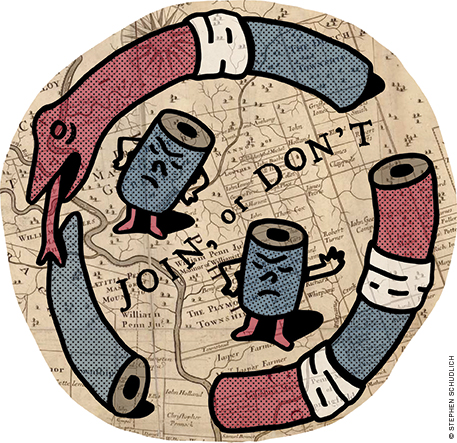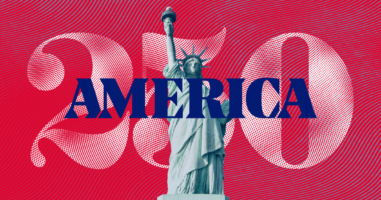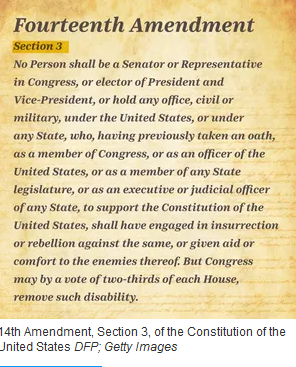
In 2013, I attended “The American Reborn” conference in Philadelphia. The conference was organized by Michael Zuckerman of the University of Pennsylvania and Patrick Spero,a former Penn student now librarian and director of American Philosophical Society. After the conference, I wrote a series of post on New York History Blog which I also circulated to various American history scholars.
1. American Revolution Reborn: New Perspectives for the 21st Century
2. American Revolution Reborn: Part II
3. American Revolution Reborn: Missing New York
4. American Revolution Reborn: Religion, Diversity, and E Pluribus Unum
5. American Revolution Reborn: America Renewed
Mike Zuckerman also contributed a guest post to New York History Blog:
American Revolution Reborn: Michael Zuckerman on American Exceptionalism
to which I responded:
Scholars in the Public Mind: The American Revolution Reborn
In September, 2016, I saw Mike when he spoke at an Early American History seminar at Columbia University. His visit was just prior to the release of the book on the conference presentations. During his talk, he brought up my blog about presentism and the American Revolution. I cited the examples of The Patriot, Hamilton, and Turn. I invited Mike to write another post on the subject. He didn’t. Instead what happened is he was interviewed by The Pennsylvania Gazette and he used that opportunity to address some of the still unresolved but vitally-important for the health of the country issues.
The interview on October 27 was by senior editor Samuel Hughes. It appears in the November/December issue of The Pennsylvania Gazette and follows.
The question from the audience bordered on the subversive. It came during “The American Revolution Reborn,” a 2013 conference organized by Michael Zuckerman C’61, emeritus professor of history, and Patrick Spero G’04 Gr’09, librarian and director of the American Philosophical Society, which hosted the event. (The conference also yielded a book of the same title, co-edited by Spero and Zuckerman and published last month by the University of Pennsylvania Press.)
“Somebody—clearly one of the non-academics—got up and said, ‘Look, all of you are full of nuance, full of contradictions of prevailing wisdom, but what do you really think? Was the Revolution a good thing or a bad thing?’” Zuckerman recalls. “He was sensing that the mood was overwhelmingly disenchanted, anti-heroic, anti-nation-building, and he was getting a distinctly negative, sour take on the Revolution. He wanted to know, ‘After all this, do you think we shouldn’t have done it?’”
Eventually Pulitzer Prize-winning Harvard historian Laurel Thatcher Ulrich offered a response, but she “refused to give a bottom-line judgment—said it was the wrong kind of question—and left him hugely unhappy.”
The disagreement continued after the conference ended. Peter Feinman C’71, a schoolteacher who founded the nonprofit Institute of History, Archaeology, and Education, reported on it extensively in his New York History Blog.
“Peter’s a thoughtful, critical guy but ultimately a high-powered patriot,” says Zuckerman. “He was saying, ‘We’ve got to save the Revolution. It’s an inspirational thing—and you guys are not helping the cause.’ He took the side of the person who had asked the question and accused the historians of pussyfooting, and said that’s why they don’t have any clout and why we have nothing to say to people beyond our own cloister. And people weighed in—most of them attacking Peter, because they were scholars, but everybody was quite righteous.”
A smile plays across Zuckerman’s face. “It was a great brawl, with no resolution.”
The conditions that led to the conference and its brawl had been festering for decades.
“Revolutionary scholarship has been moribund for a generation,” says Zuckerman. “Graduate students don’t read much on the Revolution, don’t get excited by the Revolution; the subject hardly comes up in oral exams when they’re doing their PhD prelims—it’s just no longer a sexy topic.”
According to Zuckerman, who wrote The American Revolution Reborn’s concluding essay,the conference was prompted by the work and financial support (channeled through Penn’s McNeil Center for Early American Studies) of Frank Fox, an independent historian and author of Sweet Land of Liberty: The Ordeal of the American Revolution in Northampton County, Pennsylvania. But the larger aspiration, Zuckerman notes, was to revive the study of the Revolution, “because it’s kind of a crime that this central event—one of the two central events in our history—should be falling into such neglect.”
Like the conference that spawned it, the new book explores a broad range of topics from new vantage points; the titles of its essays range from “Uncommon Cause: The Challenges of Disaffection in Revolutionary Pennsylvania” to “The Problem of Order and the Transfer of Slave Property in the Revolutionary South.” Given its multifarious viewpoints, the book does not claim a cohesive vision.
The various authors’ “depictions of the Revolution may not lead to the clear interpretive frameworks that once defined studies in the field,” notes Spero in his introduction, “but they may, ironically, provide a more accurate picture of an event that was, after all, a very messy one.”
Almost all of the authors “set a complicated disorder at the core of their analyses,” adds Zuckerman in his essay. “They spurn the nation-building project that has driven historical writing in the West for two centuries.”
It’s not surprising, then, that the closest thing to a leitmotif involves the ambivalence and disaffection that a majority of colonial Americans felt about the war.
“The most powerful finding that comes up at every level—from tiny intra-family [divisions] to grandiose statistical aggregates of the entire colonial population—is the extent to which Americans wanted to stay out of the way of the war,” says Zuckerman. “We have always recognized that there were Americans who didn’t want to be involved in the war. The cliché for a long time—a very un-evidenced cliché—was ‘one-third rebel, one-third Tory, one-third neutral.’ But it’s been very difficult to quantify the accuracy of any of those.”
Take the Pennsylvania family whose loyalties are explored in the “Uncommon Cause” essay, he notes. “The father hightails it out of town and joins the British in New York, but the wife stays in Bucks County. If the wife stays, she can claim that her husband is a ‘goddamn Tory’ but she’s not. Then, whoever wins, they’re ready to go into action again, and they’ll reunite after the war and work it out.” So were they Tories, American sympathizers, or just “really committed to saving their property”?
Add to those murky divisions such mass movements as the Methodist revival, whose priority was saving souls, or the countless squabbles between citizens and local governments and militias, and you have “great difficulties in actually putting people on one side or another,” Zuckerman says. “They change depending on the situation. When the American army is nearby, they’re good patriots. When the British army displaces the American army, they’re loyal Tories. As soon as both armies are gone, they don’t give a damn anymore.”
Unlike the people who actually lived through it, Zuckerman notes, “historians care about big politics. Anybody who didn’t take a stand on the Revolution is marginal in the eyes of political historians particularly. But many of these people thought they had much more important business than the war between the rebels and the Brits.”
Based on more recent scholarship, including examinations of militia records and other data, it appears that roughly 60 percent were disaffected or otherwise neutral, and that the rebels and Tories divided the other 40 percent in ways that are difficult to break down precisely. In which case, Zuckerman says, “we’re no longer talking about a revolution that was the glorious emanation of the spirit of the people. We’re talking about a coup. We’re talking about 20 percent who stole the country for their interests, ideology, politics—and who used force to bring the other 80 percent around.”
Such conclusions, of course, are considered heresy in some quarters. But then, that was part of the point.
“The story of the audacious bravery of the minutemen at Lexington and the sanctified suffering of Washington’s troops at Valley Forge is not a story for adults, who might sound its complexities and explore its ambiguities,” Zuckerman writes. “It is a story for children, who are to learn from it their identity and their allegiance.”
The conference and the book effectively subvert a scholarly agenda laid out 50 years ago by Harvard historian Bernard Bailyn and some of his students, who “argued that a peculiar constellation of ideas they called republican ideology explained better than anything else the willingness of American colonists to go to war against the most powerful military and naval force on the planet.” But the republican synthesis “was as bloodless as it was arcane,” Zuckerman contends, and made the history of the Revolution one that “happened primarily in the mind, not on the battlefield or in people’s pursuit of their worldly lusts.” Worse, it “quarantined the Revolution from the rest of American history,” and made a “vicious and protracted” war “almost entirely about what men thought and scarcely at all about what they did.”
The intense hostility between Bailyn’s “neo-Whig” acolytes (as they were sometimes called) and the “neo-progressives” who rejected them has contributed to the ossification of Revolutionary scholarship, in Zuckerman’s view. Younger scholars are sometimes leery of entering the fray “because the camps are so entrenched and so disrespect each other that if you get into that whipsaw, you might make some enemies that you might not want when you’re 26 years old.”
Both the conference and the book, he writes, provide a “vivifying glimmer of a reconciliation between scholars and citizens.” Some of that was owing to the new approaches he and Spero took in setting up the conference.
First, in order to get fresh perspectives, they decided not to round up the usual academic suspects. Instead, they attracted scholars from a broad range of disciplines—material culture, the history of art, law, literature—as well as a goodly number of “super-distinguished early American historians who have never written about the Revolution.” (Zuckerman, himself a distinguished scholar of that era, had not written extensively on the Revolution, either.)
Second, they would accept only short papers (8-10 pages), which would later be fleshed out in the book. Their brevity ensured that those in attendance would actually read them all.
Third, since none of the formal presentations lasted more than eight minutes, each session had more than an hour left for exchanges with an audience that included roughly as many non-academic outsiders as university-based scholars. And those exchanges were “spectacular,” Zuckerman says. “Occasional fireworks, occasional hostility between the scholars and non-scholars, but mostly just warmth and excitement and energy—during and after.”
So what does Zuckerman himself think? Was the American Revolution a good thing or a bad thing?
“I think overwhelmingly good for a long time,” he says. “But that overwhelming good is exactly what made us the nation we are now—which is, as the world perceives us, an enormously dangerous nation.
“Take all of that messianic fervor, all of that exceptionalist self-righteousness, and project it on our modern scale, and we’re a menace. We’re a hope, and we’re a menace. And where the equipoise is going to fall, where the needle is going to be centered, is up for grabs. But we can do harm on a scale that we couldn’t dream of doing in the 1800s or 1900s. This is our world now. And part of our trouble now is that, on top of all the rest, we have so little self-consciousness and self-awareness that we still think we’re what we were a hundred years ago. And that’s part of the failure of historians to get through to the public.”
In a sense, the deepest questions raised by the Revolution and the attempts to define it are with us still, Zuckerman writes. “How were Americans to claim the Revolution yet disclaim its revolutionary implications? How were they to found the new nation on a rising against authority yet achieve a stable government? How were they to mark the Fourth of July with pageantry and parades yet not invite future insurgencies?”
That dilemma, he concludes, “has only grown more troubling with time, and American elites wrestle with it still.”
Note: Mike incorrectly identifies me as a school teacher and as the owner of New York History Blog. I was a contributor of the posts on the American Revolution Reborn Conference to New York History Blog and have taken teachers to American Revolution sites in New York as part of Teacherhostels/Historyhostels.





Interesting, and it caught me in the middle of refiling much of my Rev War materials to get them off my floor, and only then to then permit me to commence my next three projects: adding two biographies to my now-growing course: “Names You’ve Never heard of Before, but will now NEVER FORGET” seminar, plus a multi-long session on “Spies and Spying During the Rev War”. I won’t start those until my office floor is cleaned up of unsorted paperwork !
Two thought to share w/you on the topics presented here:
– “Rev War: Was it a Good or Bad thing for America ?” Probably good, I feel, but with a very modest downside. Simply look to Canada or Australia as examples of “losing”, and remaining under British controls for years to follow. Not really the worst thing in the word, as we can see.
As for starting then fighting, the war, I always felt that there was an ulterior motive from the rich, that the working case may never have shared. The best and clearest example would be George Washington himself. The Colonists were boxed in: Canada to the North, Spain to the South (Florida), and the Atlantic ocean tot he East. Only the “West” (Ohio Valley, etc) was available for expansion, but the Proclamation of 1763 that ended the F&I War made settling there illegal. Washington, himself had huge land holdings out there, lands that he purchased from military friends who had no thoughts of occupying the grants they had obtained in lieu of pension payments. Now that land would be useless to him under the King. Get free from Britain and it all could be sold or developed. Very little is spoken about that aspect of personal gain, but author James Kirby Martin made an interesting comment about Washington’s instructions back home to his 1/2 brother tending to Mt Vernon in his absence. With the Continental currency inflating and projected to be quite worthless in the future, his instructions were simple: “take our cash and BUY LAND with it !!” The land would never devalue like the paper would. Smart man, but w/o independance from England, no development there would be possible ….
Something to ponder, no ??
b.
England learned from the loss in the United States and that helped it make sure it wouldn’t make the same mistakes twice.
The situation was much different later as the battle for North America essentially was over by the time Canada become free.
Also the situation with the colonists was very different regarding their reasons for leaving England in the first place.
Washington wasn’t president then so the obligations were different. Times have changed. I am sure it will only be a matter of time before China offers to build a whole lot of Trump resorts!
Peter ~
Waiting for a tardy researcher and had the luxury of time to read this post. I rarely have time to closely read things like this. Really interesting to read some of this validating my take on the Rev. especially in NY state. Thanks for sending it along.
Leigh, please let me know when you are next having free time so I can send you another post! 🙂
Peter
Wonderful piece, Peter!
Peter,
I agree with the point you make in response to Robert: England learned from the loss of the 13 colonies: To be specific, in Great Britain in the 1780s there were major liberalizing political consequences of the defeat: the ruling Tory faction in Parliament lost power; by the late 1780s the Tory Party had reinvented itself as simply a conservative party; no longer and never again would it be known as the king’s party, always following the king’s bidding; King George III, highly influential politically right up the time of Yorktown, lost all influence from that point on. One of the Whig governments that immediately came to power was that of Charles James Fox. He, in alliance with his friend, Wilberforce, introduced the first legislation in Parliament against slavery. In short, Great Britain set out on a more liberal political course after the defeat in America. Canada and Australia, and Britain herself, all benefited.